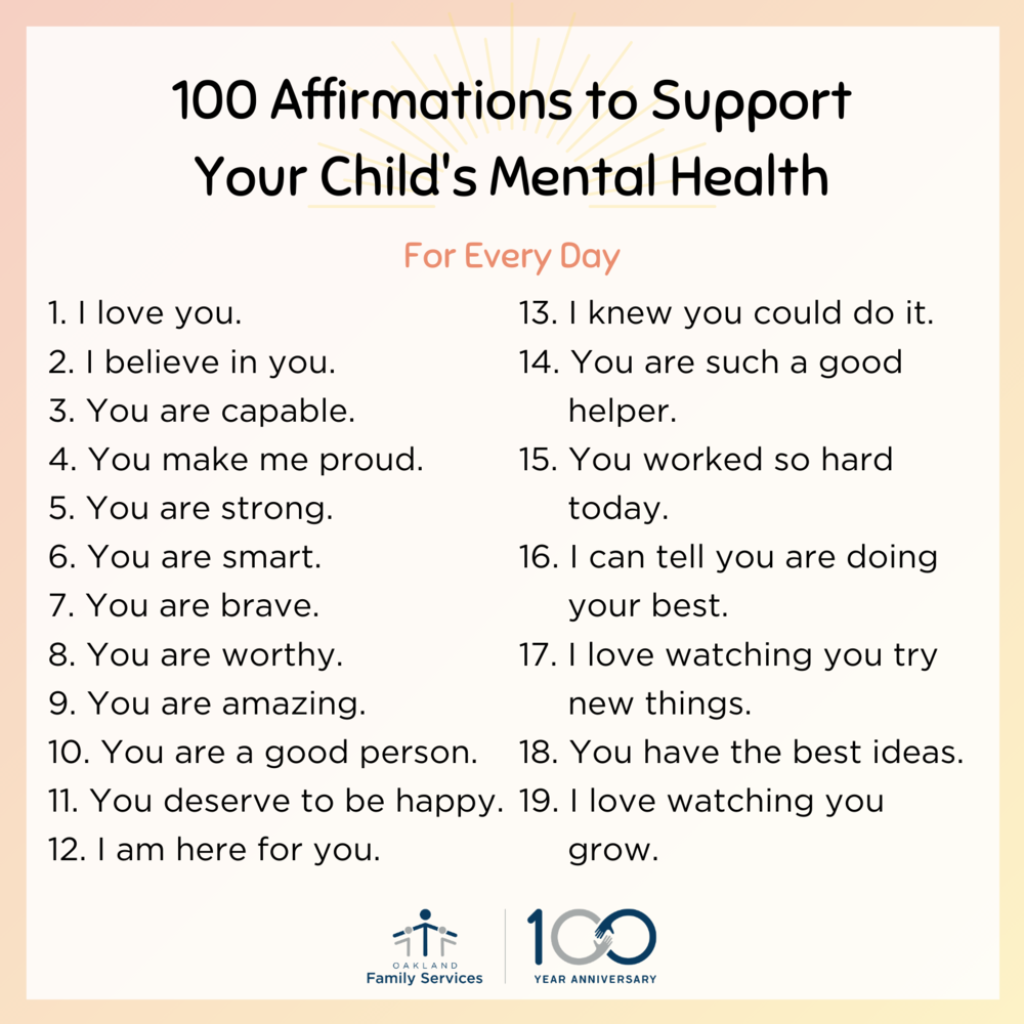Nurturing Mental Health For 4-Year-Olds: Unlocking A Bright Future With Early Support
Mental Health in 4-Year-Olds: A Comprehensive Guide
Introduction
Dear Readers,
1 Picture Gallery: Nurturing Mental Health For 4-Year-Olds: Unlocking A Bright Future With Early Support

Welcome to our comprehensive guide on mental health in 4-year-olds. As parents and caregivers, it is crucial to pay attention to the emotional well-being of young children. Mental health plays a pivotal role in a child’s overall development and can significantly impact their future. In this article, we will delve into the various aspects of mental health in 4-year-olds, discussing its significance, common challenges, and effective strategies to promote well-being.
Now, let’s begin our journey to understand and support the mental health of our little ones.
Table of Contents
Introduction
What is Mental Health?
Who is Affected?
When to Seek Help?
Where to Find Support?
Why is Mental Health Important?
How to Promote Mental Health?
Advantages and Disadvantages
FAQ
Conclusion
Final Remarks

Image Source: squarespace-cdn.com
What is Mental Health? 🔍
Mental health refers to a person’s emotional, psychological, and social well-being. It affects how individuals think, feel, and act, influencing their ability to handle stress, form relationships, and make decisions. For 4-year-olds, mental health plays a vital role in their early development and lays the foundation for future well-being.
Understanding Emotions in 4-Year-Olds
At this age, children are exploring and experiencing a wide range of emotions. They may exhibit happiness, anger, sadness, fear, and excitement more frequently. It is essential to support them in understanding and managing these emotions effectively.
Recognizing Mental Health Challenges
While it is normal for young children to experience occasional behavioral challenges, persistent issues may indicate underlying mental health concerns. These challenges can include difficulties in self-regulation, social interactions, or expressing emotions appropriately.
Supporting Healthy Development
By fostering a nurturing and supportive environment, caregivers can promote positive mental health in 4-year-olds. Providing love, security, and encouraging open communication helps children develop resilience and cope with life’s ups and downs.
Building Emotional Intelligence
Emotional intelligence is the ability to recognize, understand, and manage emotions both in oneself and others. Nurturing emotional intelligence in young children helps them develop empathy, problem-solving skills, and positive relationships.
Encouraging Play and Creativity
Play is a vital component of a child’s mental health. Engaging in imaginative play, art, and other creative activities allows 4-year-olds to express themselves, explore their emotions, and develop their cognitive and social skills.
Nurturing Secure Attachments
Building secure attachments with caregivers and significant others is crucial for a child’s mental well-being. A secure attachment provides a sense of safety and trust, enhancing emotional resilience and promoting healthy development.
Who is Affected? 🎯
Mental health can impact any child, regardless of their background or circumstances. However, certain factors may increase the vulnerability of 4-year-olds:
Family Dynamics
Family environments greatly influence a child’s mental health. Factors such as parental stress, conflicts, and unstable relationships can impact a 4-year-old’s emotional well-being.
Exposure to Traumatic Events
Children who experience traumatic events, such as abuse, neglect, or loss of a loved one, may be at higher risk of developing mental health issues. It is crucial to provide appropriate support and interventions for these children.
Genetic and Biological Factors
Some children may be genetically predisposed to mental health conditions. Additionally, imbalances in brain chemistry or developmental delays can contribute to mental health challenges in 4-year-olds.
Social and Environmental Factors
The socio-economic status, access to quality healthcare, and educational opportunities can significantly impact a child’s mental health. Children from disadvantaged backgrounds may face additional challenges.
Pre-existing Medical Conditions
Physical health conditions, such as chronic illnesses or developmental disorders, can affect a child’s mental health. It is essential to address both the physical and emotional needs of these children.
Effects of Media and Technology
The exposure to screens and digital media can impact a 4-year-old’s mental health. Overuse of screens, violent content, and lack of parental monitoring can have detrimental effects on their well-being.
When to Seek Help? ⏰
Recognizing when a 4-year-old needs professional help for their mental health is crucial. While occasional behavioral challenges are common, consider seeking assistance if:
Persistent Emotional Distress
If a child exhibits prolonged sadness, frequent tantrums, intense fear, or extreme anger that interferes with their daily functioning, it may indicate the need for professional evaluation.
Withdrawn Behavior
If a 4-year-old consistently avoids social interactions, displays excessive shyness, or fails to engage in age-appropriate activities, it is essential to seek professional guidance.
Sudden Changes in Behavior
Significant shifts in a child’s behavior, such as sudden aggression, regression, or difficulty sleeping, eating, or concentrating, may be indicators of underlying mental health concerns.
Concerns from Multiple Sources
If caregivers, teachers, or other individuals involved in a child’s life express concerns about their mental well-being, it is important to take their observations seriously and seek professional support.
Family History of Mental Health Issues
If there is a family history of mental health conditions, children may be at a higher risk. Regular monitoring and early intervention can help mitigate potential challenges.
Intuition as a Caregiver
As a caregiver, trust your instincts. If you feel that something is amiss or that your 4-year-old is struggling with their mental health, it is better to seek guidance and support rather than waiting.
Where to Find Support? 🤝
When it comes to supporting the mental health of 4-year-olds, numerous resources and professionals can offer guidance and assistance:
Pediatricians and Family Doctors
Consulting with a pediatrician or family doctor is a great first step. They can evaluate your child’s overall health and refer you to specialists, if necessary, for further assessment and intervention.
Early Childhood Educators
Teachers and educators who work closely with 4-year-olds can provide valuable insights into a child’s behavior and emotional well-being. They can offer strategies and recommendations for promoting positive mental health.
Child Psychologists and Therapists
Child psychologists and therapists specialize in assessing and treating mental health issues in young children. They can provide individualized interventions, counseling, and support for both the child and their caregivers.
Parenting Support Groups
Joining parenting support groups or networks can connect you with other caregivers facing similar challenges. These groups offer a platform to share experiences, seek advice, and access valuable resources.
Community Mental Health Centers
Local mental health centers often offer services specifically designed for young children. They may provide diagnostic assessments, therapy sessions, and parent education programs.
Online Platforms and Apps
Several online platforms and mobile applications offer reliable information, tools, and resources for promoting mental health in 4-year-olds. However, ensure that you choose reputable sources.
Why is Mental Health Important? 💡
Mental health plays a fundamental role in a 4-year-old’s overall well-being and development:
Healthy Brain Development
Positive mental health supports optimal brain development, enhancing a child’s cognitive abilities, emotional regulation, and social skills.
Building Resilience
By nurturing mental health, caregivers help children develop resilience, enabling them to cope with challenges, setbacks, and stressors throughout their lives.
Academic Success
Children with good mental health are more likely to excel academically, as they can focus, concentrate, and engage in learning effectively.
Physical Health and Well-being
There is a strong relationship between mental and physical health. Promoting mental well-being in 4-year-olds positively influences their physical health and establishes healthy habits early on.
Healthy Relationships
Children with positive mental health are more likely to develop healthy, fulfilling relationships with their peers, family members, and other significant individuals in their lives.
Prevention of Mental Health Issues
Early interventions and proactive efforts to promote mental health can reduce the risk of developing mental health conditions later in life.
Overall Life Satisfaction
Positive mental health sets the stage for a child’s overall life satisfaction and happiness. It contributes to their self-esteem, self-confidence, and overall sense of well-being.
How to Promote Mental Health? 🌟
As caregivers, there are numerous strategies and practices that can foster positive mental health in 4-year-olds:
Establishing Daily Routines
Consistent routines provide children with a sense of security and predictability, reducing anxiety and promoting emotional well-being.
Encouraging Physical Activity
Regular physical activity supports positive mental health by releasing endorphins, reducing stress, and promoting overall well-being.
Promoting Healthy Sleep Habits
Adequate sleep is crucial for a child’s mental health. Ensure that your 4-year-old follows a consistent sleep schedule and practices good sleep hygiene.
Modeling Healthy Coping Strategies
Showcasing healthy coping mechanisms and problem-solving skills helps children learn how to manage stress, regulate emotions, and overcome challenges.
Encouraging Open Communication
Create a safe and non-judgmental space for your 4-year-old to express their feelings and thoughts. Encourage open conversations and active listening.
Limiting Screen Time
Set appropriate limits on screen time and ensure that the content your child consumes is age-appropriate, safe, and educational.
Promoting Social Interaction
Arrange playdates, enroll your child in social activities, and encourage positive social interactions to enhance their social skills and emotional development.
Advantages and Disadvantages 📚
Mental health in 4-year-olds has both advantages and disadvantages. Let’s explore them in detail:
Advantages of Good Mental Health
Improved Cognitive Abilities: Good mental health enhances a child’s ability to concentrate, learn, and solve problems.
Positive Emotional Well-being: Children with good mental health experience increased happiness, contentment, and self-esteem.
Healthy Social Relationships: Positive mental health contributes to better peer relationships, empathy, and collaboration.
Resilience and Coping Skills: Good mental health equips children with the ability to adapt, bounce back from setbacks, and cope with stressors.
Academic Success: Children with good mental health are more likely to excel academically and engage in learning effectively.
Disadvantages of Poor Mental Health
Learning and Developmental Delays: Poor mental health can hinder a child’s cognitive and emotional development.
Social and Behavioral Challenges: Children with poor mental health may struggle with social interactions, self-regulation, and emotional expression.
Increased Risk of Mental Health Disorders: Poor mental health in early childhood may increase the risk of developing mental health conditions later in life.
Physical Health Implications: Mental health issues can impact a child’s physical health, leading to sleep disturbances, appetite changes, and compromised immune system.
Academic and Educational Barriers: Poor mental health can impede a child’s ability to concentrate, engage in learning, and reach their academic potential.
FAQs ❓
1. How can I support my 4-year-old’s mental health at home?
At home, you can support your child’s mental health by creating a nurturing environment, promoting open communication, establishing routines, and engaging in play and creative activities together.
2. Are temper tantrums a sign of mental health issues in 4-year-olds?
Temper tantrums are a normal part of 4-year-olds’ emotional development. However, if the tantrums are frequent, intense, or affect daily functioning, it may be helpful to consult a healthcare professional.
3. Can genetics play a role in my child’s mental health?
Yes, genetics can contribute to a child’s mental health. If there is a family history of mental health conditions, it is essential to monitor and address any potential challenges early on.
This post topic: Holistic Living


